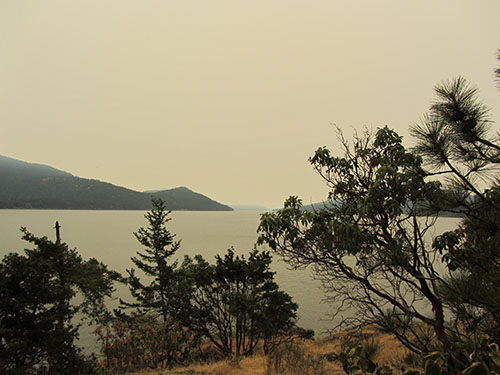Today, March 5, the Senate passed legislation sponsored by Sen. Kevin Ranker, D-San Juan Island, establishing a permanent funding source for the Neah Bay Response Tug.
“This is a big step in the right direction to provide funding for the Neah Bay Response Tug from the organizations that pose the risk instead of the taxpayers,” said Ranker of Senate Bill 5344. “I appreciate the collaboration of the Legislature, Department of Ecology, the Puget Sound Partnership, Western States Petroleum Association, maritime industry and numerous environmental organizations in helping move this important legislation forward.”
The Neah Bay Response Tug has assisted more than 40 commercial vessels that lost rudder control or propulsion or otherwise found themselves in situations where they were in danger of running aground. Although everyone agrees the tug is essential to maritime safety and environmental protection, funding has always been difficult to establish.
Part-time seasonal operations have been funded by state and federal programs since 1999, and the state has provided funding for full-time service since July 2008. But with tax dollars in short supply, Ranker thinks the time has come for oil tankers, cargo vessels and large cruise ships to form a cooperative to contract for standby response tug service at the mouth of the Strait of Juan de Fuca.
“The effects of an oil spill can be detrimental to valuable economic, environmental, and cultural resources,” said Sen. Phil Rockefeller, D-Bainbridge Island, chair of the Senate Environment, Water & Energy Committee. “And, with tax dollars at an absolute premium, this measure correctly delegates payment for the potential services to those who would use them, not tax payers.”
“A response tug for the Strait of Juan de Fuca is essential not only for environmental protection, it’s also a practical resource for ensuring safe navigation,” said Sen. Jim Hargrove, D-Hoquiam. “A response tug can help avert a major accident that would otherwise delay or block shipping and impact our economy.”
The bill has widespread support from around the state, including the unanimous support of all 39 Washington counties through the Washington State Association of Counties, tribes, industry and numerous environmental organizations.
“Preventing pollutants from entering our waterways in the first place is the most reliable and cost-effective way to manage Puget Sound’s health,” said David Dicks, executive director of the Puget Sound Partnership, which recently adopted the Action Agenda to protect and restore Puget Sound. “I appreciate the leadership of Sen. Ranker, and the broad-based coalition of labor, the maritime industry and environmental organizations such as People for Puget Sound, who all came together to pass this important legislation specified in the Action Agenda.”
The bill passed on a vote of 44-4 and now goes to the House for consideration.






